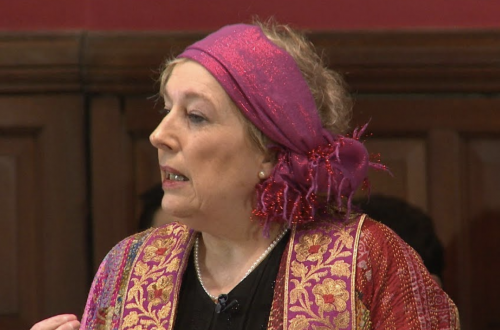In the wake of Eagle’s prospective challenge, this legal and technical question has once again come to the fore. Does Jeremy Corbyn, like Angela Eagle, need to secure 20% of the PLP’s support, or will his name automatically be included on the ballot? (You can hear Corbyn discussing the topic on this morning’s Marr show.) This seems a good moment to revisit two interesting articles published some months ago – these offer opposed readings of the Labour Party’s rules:
Does ‘any nomination’ in (ii) include the incumbent or only the challengers?
Jolyon Maugham makes a very convincing case, I think, to support Corbyn’s own view that he does not need to seek nominations – he argues that the rules, while not ideally clear, pretty strongly imply that only challengers need them.
‘SpinningHugo’ reaches a different conclusion. He invokes the way the term ‘nominee’ is used throughout the rules on elections to argue that all candidates must seek support from 20% of the PLP. He also discusses an apparent precedent set when Neil Kinnock, facing a challenge to the leadership, did secure the nominations Corbyn insists he doesn’t need. However Hugo is unconvinced that this is an overwhelming argument:
How a leadership election between an incumbent and a challenger has been run in the past cannot provide a binding precedent for how the rules are to be read. It may well be either that the rules were not understood at that time, or that Kinnock’s nominations were otiose and sought for political effect. Further, in interpreting a contract (in England), how the parties subsequently operate that contract is irrelevant to its interpretation. The words mean what they mean, not what the parties to the deal subsequently think they mean.
Here, in an update, is a further argument against Corbyn’s position:
In comments, David Boothroyd has kindly tweeted the provisions of the Labour rulebook in force in 1988. Back then the rules drew no distinction between the situation where there was and was not an incumbent, and required nominations of 5%of the PLP regardless. (This was subsequently raised to 20% to prevent Benn standing again). Under those rules it was quite clear that the incumbent had to be nominated.
The change to the current wording seems to me to have been made in order to require different levels of support where there is a vacancy and where there is not. Currently where there is a vacancy it is 15% and where there is not 20%. It is arguable that that was the only change that was intended, and not a change to the requirement that the incumbent be nominated.
This seemed an interesting point, although, from a lay perspective, I don’t know whether it’s appropriate to speculate about the intentions of those drafting the laws as opposed to simply look at them in isolation, as Maugham does. However I did wonder whether the drafters of the current rules might not have wanted to set the level of support for the incumbent at a lower % than 20, if the sole purpose of the distinction being introduced was to set the bar higher for challengers, and if they did not mean to change the requirement that the incumbent be nominated.
UPDATE – Thanks to Phil Rodgers for pointing out I’d used an older version of the rules which I’ve now replaced. Apparently the main implication of the change is that if Corbyn resigned he’d need fewer nominations (should nominations be ruled necessary).
And here, also via Phil Rodgers, is one (not necessarily definitive) legal opinion.



